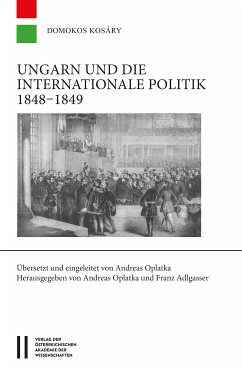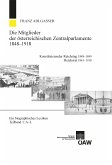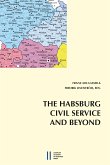Das Spätwerk des großen ungarischen Historikers Domokos Kosáry "Ungarn und die internationale Politik 1848-1849" behandelt ein Thema, mit dem sich schon zahlreiche Historiker auseinandergesetzt haben, das aber in der von Kosáry gewählten Perspektive noch von niemandem dargestellt worden ist. Den im Frühherbst 1848 in einen Krieg mündenden Konflikt zwischen Österreich und Ungarn zeigt Kosáry im gesamteuropäischen Zusammenhang, im Lichte der Meinungen und Interessen, die in London und Paris, Sankt Petersburg und Istanbul, Turin, Belgrad und Bukarest bestanden. Viel Raum widmet er auch der Tätigkeit von exilierten ostmitteleuropäischen Persönlichkeiten, zuvorderst den Bestrebungen des polnischen Fürsten Czartoryski. Dabei erweist sich, dass namentlich England, die führende europäische Macht, für den Freiheitskrieg der Ungarn zwar Sympathien hegte, die von Palmerston geführte britische Außenpolitik aber sehr entschieden gegen Ungarns Sezession eintrat, da man in London im Fortbestand eines starken Österreichischen Kaiserreichs in der Mitte des Kontinents ein notwendiges Gegengewicht zu Russland erblickte. Die aus der 1848er Revolution hervorgegangene ungarische Regierung, die sich ihre Lage durch eine lange Zeit unnachgiebige Politik gegenüber den Nationalitäten im eigenen Land zusätzlich erschwerte, überschätzte ihren internationalen Spielraum. Ihre Möglichkeiten waren tatsächlich stark eingeschränkt, da die österreichische Seite zu keinem Zeitpunkt Bereitschaft zeigte, sich mit "Rebellen" auf Gespräche einzulassen. Kosárys für die Vergangenheit, doch auch für die Gegenwart geltendes Fazit mit Blick auf Ungarn und auf alle Kleinstaaten: Eigenständige Politik in Europa lässt sich seit dem frühen 16. Jahrhundert stets nur innerhalb der Grenzen führen, die durch die Wandlungen des internationalen Systems entstehen; einzig innerhalb der jeweiligen Marge ist es gegeben, Schäden zu mildern oder Vorteile wahrzunehmen.
Dieser Download kann aus rechtlichen Gründen nur mit Rechnungsadresse in A, B, BG, CY, CZ, D, DK, EW, E, FIN, F, GR, HR, H, IRL, I, LT, L, LR, M, NL, PL, P, R, S, SLO, SK ausgeliefert werden.









